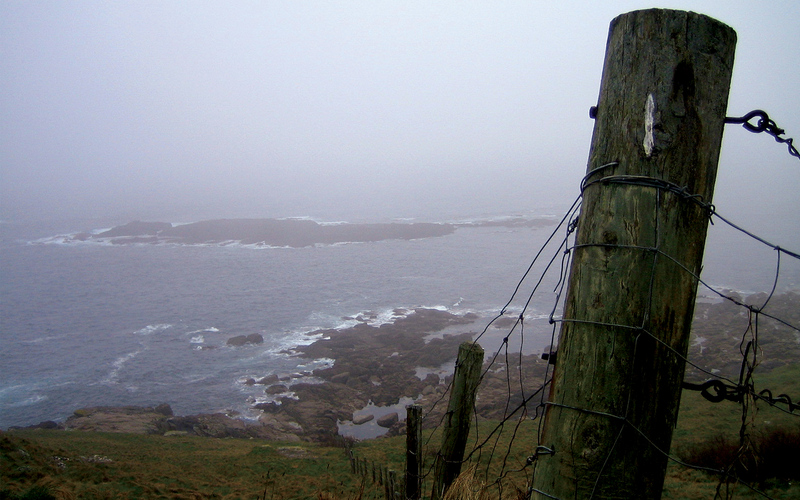
Land’s End Coastal Path at Sennen Cove, Cornwall,
United Kingdom
Near Land’s End, the south-westernmost point on the island of Great Britain, there is a twenty-mile coastal path along the tops of the cliffs. I walked about three miles along the path, from Sennen Cove to Land’s End, and there was so much fog that the sea was only barely visible from the top of the cliffs in most places, and the path would disappear behind you as you walked. It was the loneliest and most surreal place I’ve ever been.
Anna Brawley ’06 , Butler University: Oxford University, United Kingdom
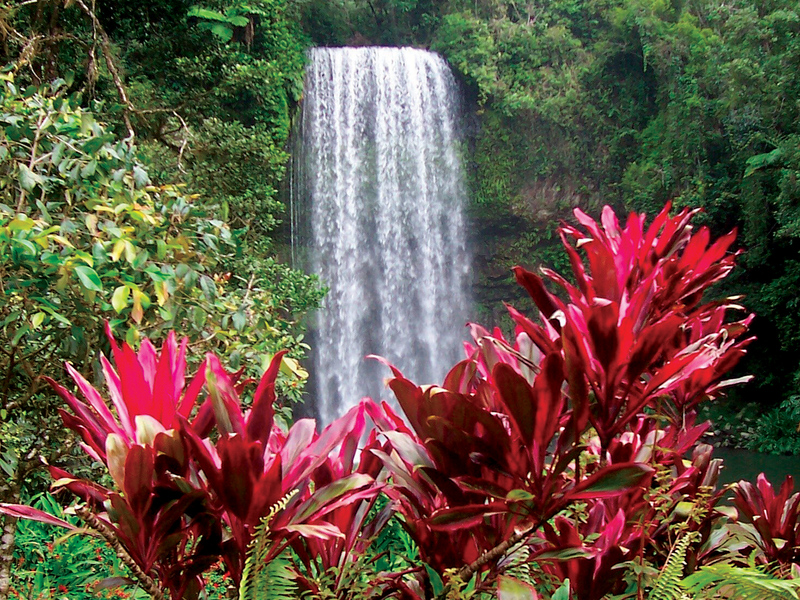
Rainforest near Cairns,
Australia
I went to Cairns during my two week holiday and had the joy of staying with a family there who took us all over the area. This spot was their favorite waterfall and we actually ended up swimming in the pool below it. I love this picture because as a biology major, the rainforest was a place I had always wanted to see and it was everything I always imagined it would be.
Erin Shaffer ’06, Institute for the International Education of Students: University of Adelaide, Australia
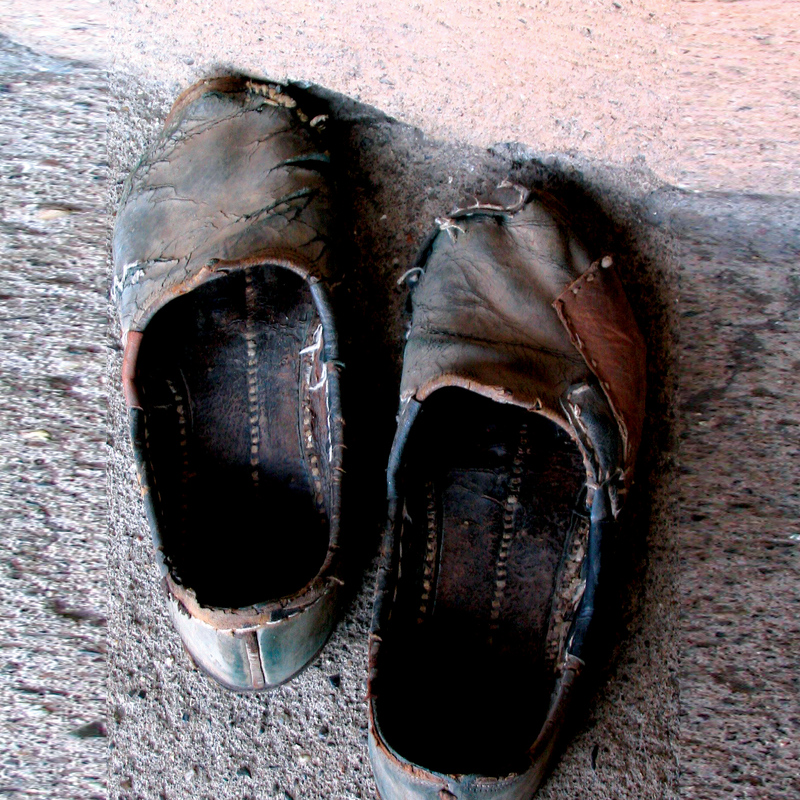
Ajanta Caves,
India
This picture was taken on the road that leads up to the Ajanta caves. The caves are more than 2000 years old and are extremely famous for their murals. Shoes are forbidden inside the caves to protect them. Tourists from all parts of India come to visit them and these shoes belong to a farmer from Rajasthan.
Ishani Banerji ’06, International Student: Mumbai, India
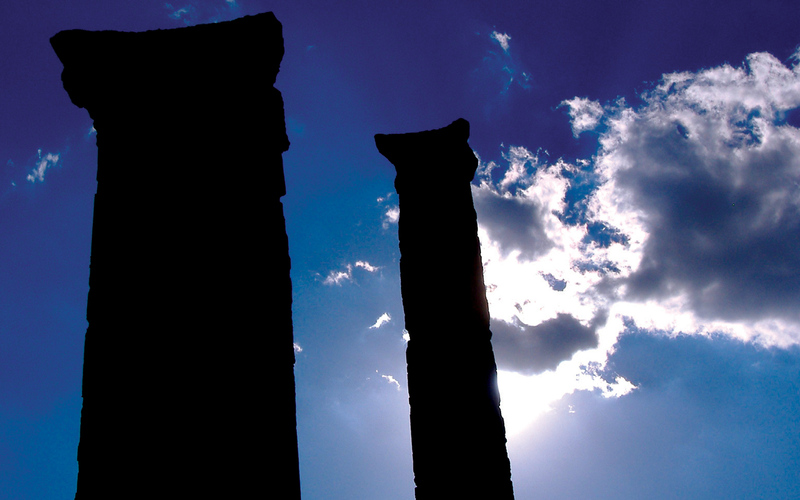
Pompeii,
Italy
This is a photo of the ruins at Pompeii, the ancient city destroyed by the eruption of Mt. Vesuvius. The time of day is dusk; the sun was just about to set. The warm light gave the sight a haunting feel. I was trying to capture in a photograph the ghostly but regal quality of the ruins.
Katie Apfelbach ’07, Arcadia University: Perugia, Italy
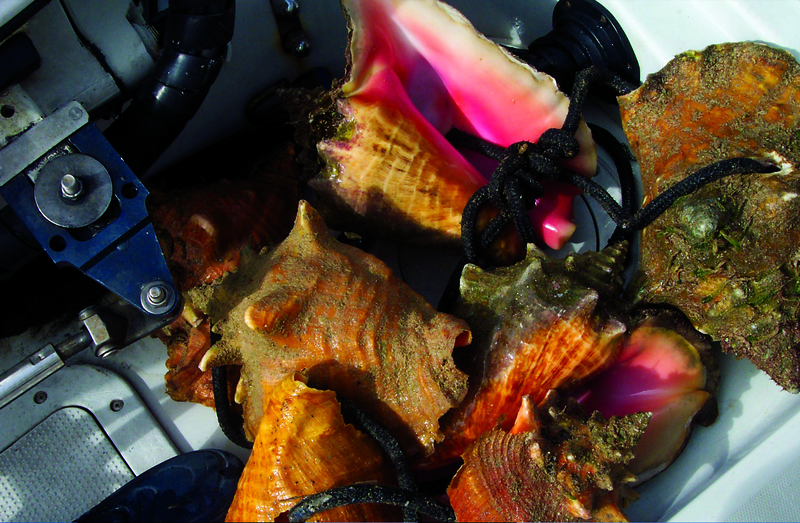
Nassau,
Bahamas
Every weekend during the summer before I left to go to college, my family and I would go in the boat and dive for conchs and then we would go to the beach and my dad would make fresh conch salad for me because he knew just how much I loved it. These are the shells that the conch lives in, but you take the mussel out of the shell to eat it. They look dirty on the outside but the insides are generally colorful. Conch salad consists of conch, tomatoes, green peppers, onions, and the juice from limes and sour oranges. It’s my favorite native food and my dad made a special effort to make it for me each weekend before college because he knew that I would miss it.
Kelly Eldon ’09, International Student: Nassau, Bahamas
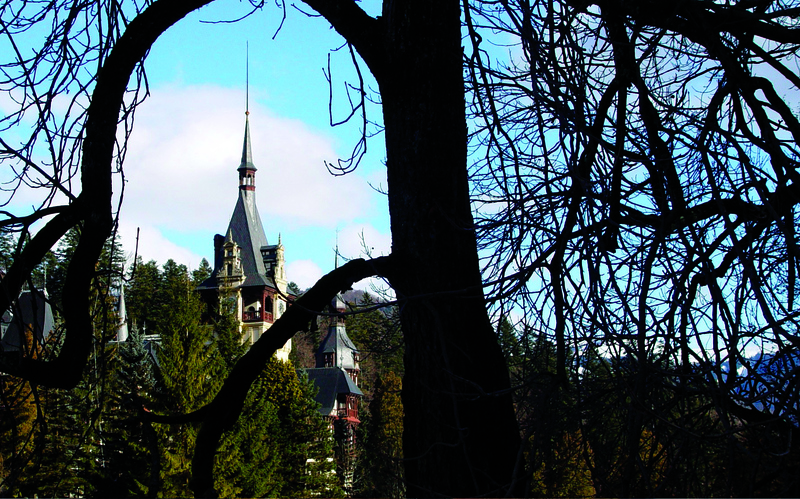
Sinaia,
Romania
Through the trees one can see Pele Castle, which once served as the summer residence and retreat for the Romanian royal monarchy. The castle was built in 1873 by King Carol I, and shelters one of the most important and most valuable painting collections in Europe. Pele Castle was the first European castle entirely lit by electrical current, which was made possible by its own electrical plant located on the bank of Pele Creek. Today, many parts of the castle are accessible to the public and houses a museum.
Crina Vasiliu ’06, International Student: Romania
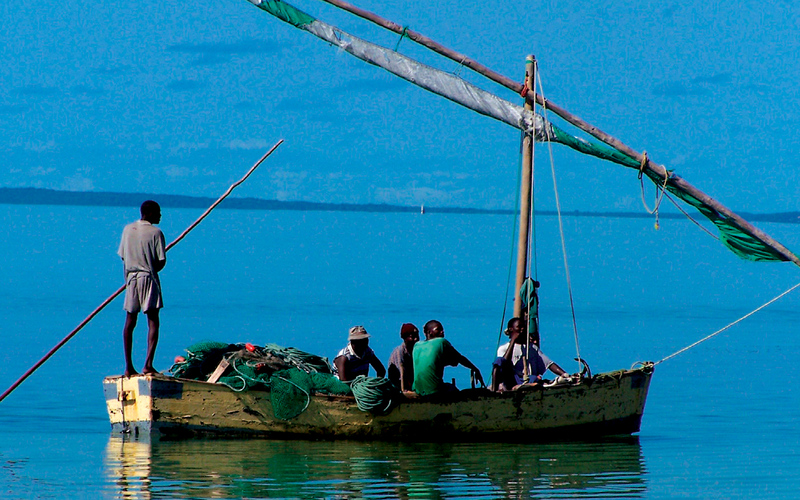
Vilankulo, Mozambique
This picture captures the early morning routine of fishermen in Vilankulo, on the eastern coast of Africa. The fishermen travel out into the ocean until you can no longer see their boats on the horizon. While the boats look less than sea-worthy, fishing is a large part of Mozambique’s economy. The only other large economic commodity is coconuts. After the Portuguese introduced coconuts during colonization, coconut farms took over the southern part of Mozambique. With the rising level of the sea every year, the coconut farms are slowly disappearing and fishing is becoming even more important.
Maggie Glaize ’06, InterStudy: University of Cape Town, South Africa
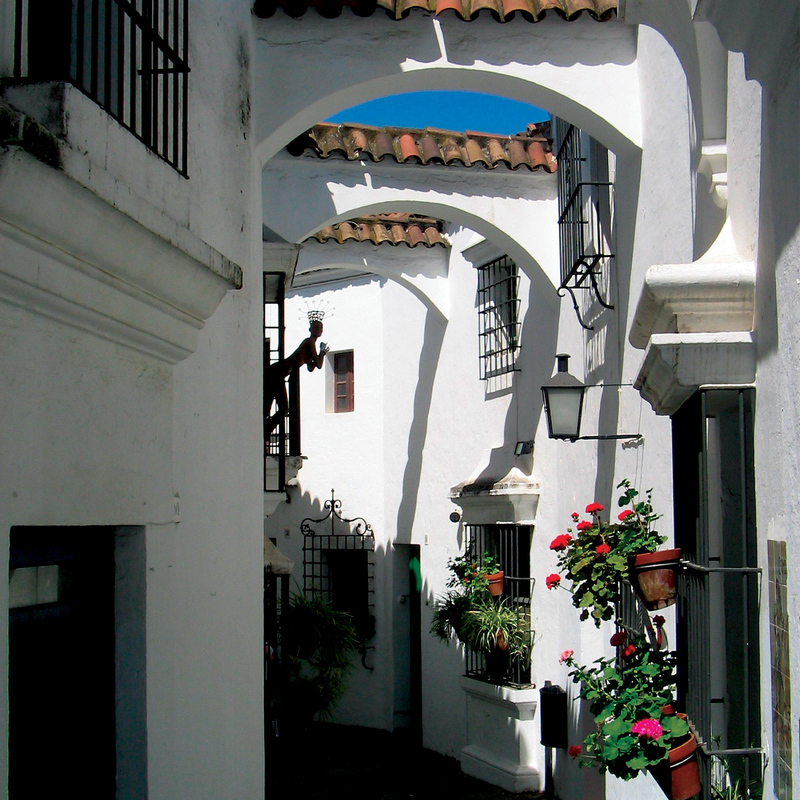
Poble Espanyol,
Spain
This is an interior look into Poble Espanyol which is a completely refurbished village made in order to honor and preserve the beauty, ideals, and historicism of Northern Spain. Within the walls of Poble Espanyol there are hundreds of unique stores selling everything from mosaic kits to paella pans to beautiful art and clothes. Many are handcrafted and all are independently owned stores that operate outside of the corporate commercialism which dominates much of the now-cosmopolitan city.
Jennifer Humbert ’06, Institute for the International Education of Students: Barcelona, Spain
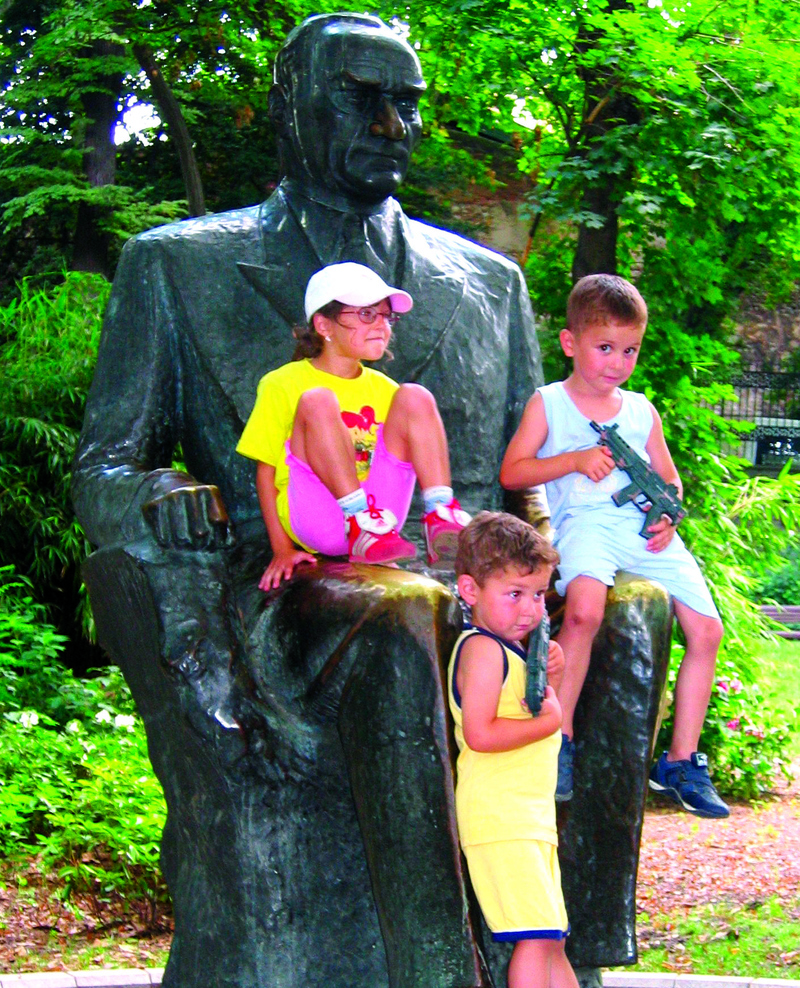
Istanbul,
Turkey
These children were posing for their family’s cameras in an Istanbul city park. Their playful faces seem out of place with the toy weapons and the stern face of Atatürk.
Mary Ann Miller ’06, Denison Exchange: Giessen, Germany
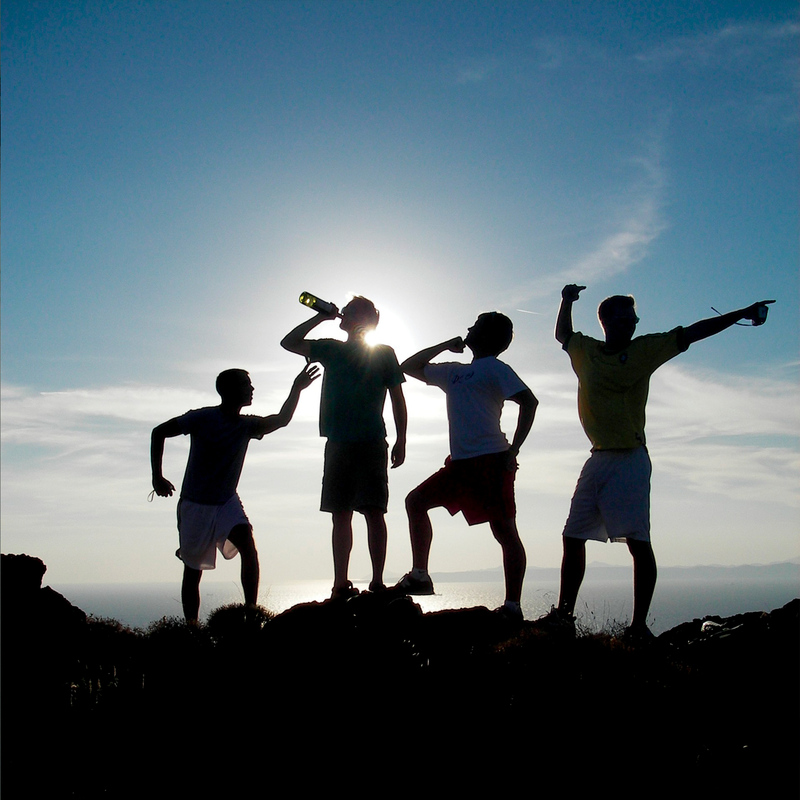
Kea,
Greece
It was the first day of our orientation trip, and we hiked a mountain to watch the sunset. It was the point at which a little bit of homesickness died.
Tyler Thornhill ’07, Arcadia University: Greece

